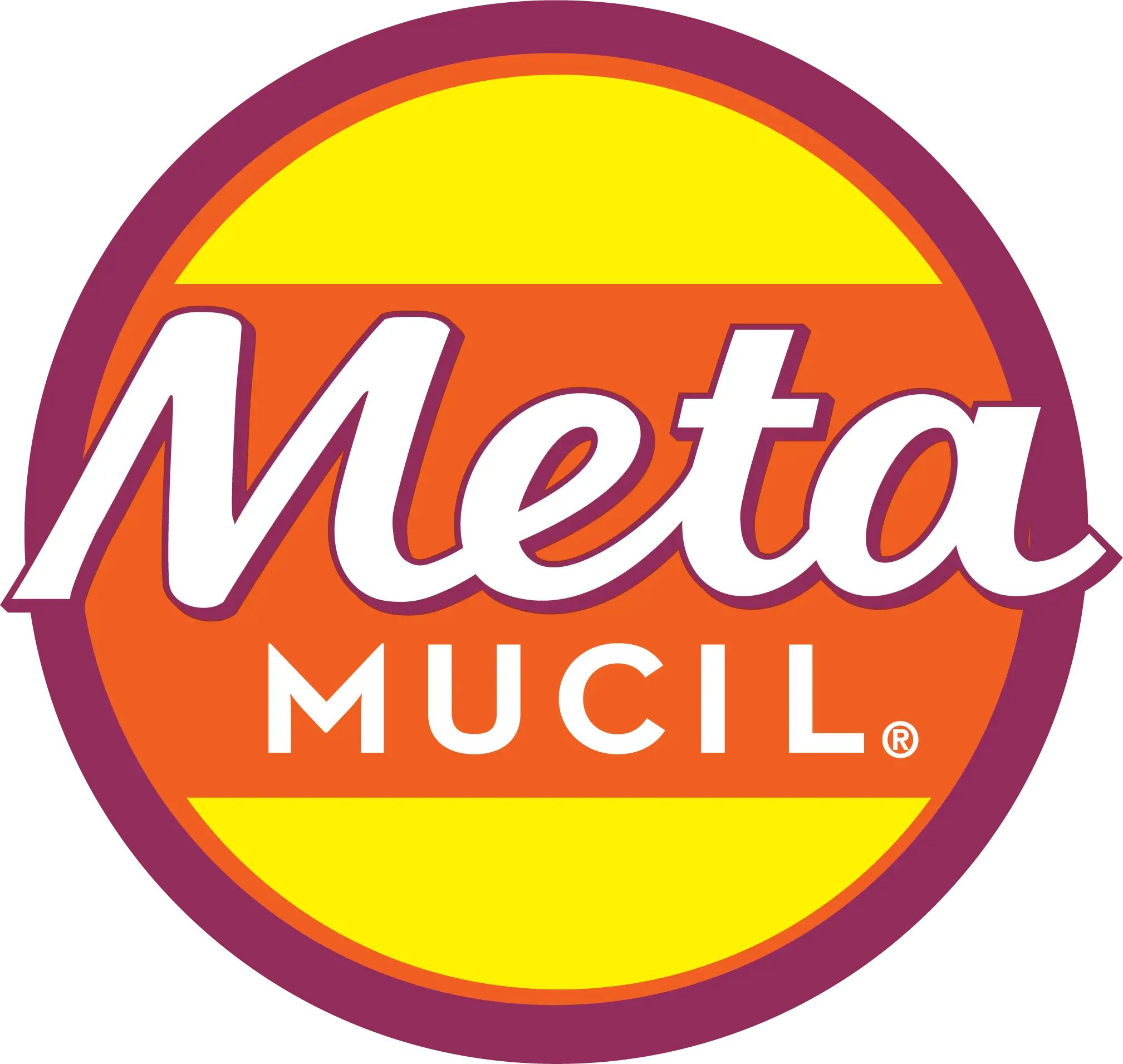Metamucil Multi-health benefits
Metamucil® psyllium fiber powders gives your patients health benefits of psyllium fiber that go beyond helping to promote regularity*.
Metamucil psyllium fiber also helps to support:
- Healthy blood sugar levels*
- Heart health by lowering cholesterol†
- Appetite control*§
†Diets low in saturated fat and cholesterol that include 7 grams of soluble fiber per day from psyllium husk, as in Metamucil, may reduce
the risk of heart disease by lowering cholesterol. One serving of Metamucil has 2.4 grams of this soluble fiber. One serving of Metamucil
capsules has at least 1.8 grams of this soluble fiber.
§Applies only to powdered formulations of Metamucil. Does not apply to Metamucil capsules.
Metamucil supports healthy blood sugar levels*
SIGNIFICANT REDUCTION OF BLOOD GLUCOSE, HBA1C%, AND FASTING INSULIN AFTER 6 MONTH TRIAL1
Psyllium husk helps support healthy blood sugar levels as part of a health diet1
Results after 6 months - difference in change from
baseline for psyllium vs. diet:1
- Fasting Blood Glucose: - 18 % ‡ p < 0.01
- HbA1c: - 0.7 units ‡ p < 0.01
- __Fasting Insulin: - 17 % ‡ p < 0.01__
Chart adapted from Cicero et al.1
††Scores averaged across all post-prandial measurement times and days were lower significantly or directionally (p ≤ 0.025 and p ≤ 0.052,
respectively) for all psyllium doses vs. placebo.
1.A randomized, controlled, parallel 6 month trial with metabolic syndrome patients. Patients were randomized to three treatment groups:
American Heart Association Step 2 Diet n=45, American Heart Association Step 2 Diet + Psyllium 3.5g BID n=46, American Heart Association
Step 2 Diet + Partially Hydrolysed Guar Gum 3.5 g BID n=46.
Metamucil helps support heart health by lowering cholesterol†
SIGNIFICANT REDUCTION IN TOTAL-C AND LDL-C VS. PLACEBO OVER 6 MONTHS IN HYPERCHOLESTEROLEMIC PATIENTS22
Significant serum lipid reductions vs. placebo2
- Total-C concentrations were 4.7% lower in the Metamucil group vs. the placebo group (p<0.001)
- LDL-C concentrations were 6.7% lower in the Metamucil group vs. the placebo group (p<0.001)
2. A double-blind, placebo-controlled, parallel, multicenter study evaluated the long-term effectiveness of Metamucil (5.1 grams twice daily, n= 197) and cellulose placebo (5.1 grams twice daily n= 51), as an adjunct to diet in the treatment of patients with primary hypercholesterolemia. Eligible patients completed an 8-week dietary adaptation phase with dietician counselling on AHA step 1 diet (weeks -8 to -1) followed by a 26-week treatment phase (weeks 0–26) and continued AHA step 1 diet with counselling.
Average change from baseline in serum lipid concentrations after 8 weeks3
Significant serum lipid reductions vs. placebo3
- Total-C was decreased by -3.8% in the Metamucil group vs. the placebo group (p<0.0001)
- LDL-C was decreased by -6.6% in the Metamucil group vs. the placebo group (p<0.0001)
3. A meta-analysis of 8 pivotal efficacy trials was conducted to evaluate the hypercholesterolemic effects of Metamucil (10.2 grams daily, n=384) and placebo (10.2 grams daily n=272) adjunctive to a low-fat diet for ≥ 8 weeks in individuals with mild-to-moderate hypercholesterolemia after a low-fat diet lead-in phase lasting ≥ 8 weeks.
Metamucil helps to support appetite control*
GREATER FULLNESS FOR 4 HOURS BETWEEN MEALS WITH METAMUCIL VS. PLACEBO
Study 1 investigated satiety effects of Metamucil vs. placebo with normal meals4††
- Increased mean fullness from meals with Metamucil vs. placebo, over 4 hours
VAS – Desire to Eat Scale/Hunger Scale results
- Hunger and desire to eat were consistently and significantly (P≤0.007) reduced for Metamucil vs. placebo**
- There were no serious adverse events, or withdrawals due to adverse events, in the study
4. Study 1: A single center, randomized, double-blind, placebo-controlled, 4-way cross-over study enrolled 30 healthy patients (19 men/11 women), 28 patients completed the study. Patients were randomized to 4 different groups: placebo and 3 different doses of psyllium fiber (3.4 g, 6.8 g, and 10.2 g) were taken before a controlled, regular breakfast and lunch. Patients spent 3 consecutive days in each group with a 4- to 5-day washout period between treatments. All patients received a single daily dose on their first day. The doses of 3.4 g and 6.8 g were given twice a day on the second and the third day. The dose of 10.2 g was given only once a day. All patients started the study receiving only 1 dose of psyllium fiber on the first day before breakfast to assess the potential impact of 3 single different doses on satiety responses. Three Satiety endpoints were self-assessed every half hour for a total of 19 per day: hunger and desire to eat on independent Visual Analog Scales (VAS) and hunger/fullness on the Satiety Labeled Intensity Magnitude (SLIM) scale.
Study 2 confirms 4-hour satiety4**
Study 2 confirmed Study 1 satiety benefits in patients consuming an energy-restricted breakfast with 6.8 g of Metamucil vs. placebo
- The SLIM Scale showed an increased mean fullness between meals with Metamucil vs. placebo, consistent over 4 hours
VAS Scales showed results similar to Study 1
- Significant reductions were seen in 3-day mean hunger and desire to eat VAS results for the Metamucil group vs placebo (p ≤ 0.008)
- The energy-restricted meal in Study 2 resulted in a decreased satiation response to the meal for both Metamucil and placebo.
No serious AE or withdrawals due to AE occurred. Mild AEs were similar, with each group reporting 3 events.
Metamucil with breakfasts increased fullness4††
FULLNESS FROM BREAKFAST WAS 33% GREATER WHEN PATIENTS TOOK METAMUCIL VS. PLACEBO
- Metamucil’s decrease on the Mean VAS hunger scores was proportional to the decreased hunger from the meal. Metamucil decreased hunger by an additional 1/3 the effect of the meal.
4. Study 1: A single center, randomized, double-blind, placebo-controlled, 4-way cross-over study enrolled 30 healthy patients (19 men/11 women), 28 patients completed the study. Patients were randomized to 4 different groups: placebo and 3 different doses of psyllium fiber (3.4 g, 6.8 g, and 10.2 g) were taken before a controlled, regular breakfast and lunch. Patients spent 3 consecutive days in each group with a 4- to 5-day washout period between treatments. All patients received a single daily dose on their first day. The doses of 3.4 g and 6.8 g were given twice a day on the second and the third day. The dose of 10.2 g was given only once a day. All patients started the study receiving only 1 dose of psyllium fiber on the first day before breakfast to assess the potential impact of 3 single different doses on satiety responses. Three Satiety endpoints were self-assessed every half hour for a total of 19 per day: hunger and desire to eat on independent Visual Analog Scales (VAS) and hunger/fullness on the Satiety Labeled Intensity Magnitude (SLIM) scale.
COMBINED RESULTS OF 6.8G METAMUCIL IN STUDY 1 & 24††
There were no serious AEs, or withdrawals due to AEs, reported in either study:4
- Increasing fullness
- Decreasing hunger
- Reducing the desire to eat between meals
**As part of a diet
††Scores averaged across all post-prandial measurement times and days were lower significantly or directionally (p ≤ 0.025 and p ≤ 0.052, respectively) for all psyllium doses vs. placebo.
References:
1. Cicero AFG et al. Psyllium improves dyslipidaemia, hyperglycaemia and hypertension, while guar gum reduces body weight more rapidly in patients affected by metabolic syndrome following an AHA Step 2 diet. Meiterr J Nutr Metab. 2010;3:47–57.
2. Anderson JW et al. Long-term cholesterol-lowering effects of psyllium as an adjunct to diet therapy in the treatment of hypercholesterolemia. Am J Clin Nutr 2000;71(6):1433-8.
3. Anderson JW et al. Cholesterol lowering effects of psyllium intake adjunctive to diet therapy in men and women with hypercholesterolemia: meta-analysis of 8 controlled trials. Am J Clin Nutr 2000;71(2):472-9.
4. Brum JM et al. Satiety effects of psyllium in healthy volunteers. Appetite 2016;(105):27–36.
RECOMMEND METAMUCIL FOR LOWERING CHOLESTEROL†, SUPPRESSING APPETITE*, AND SUPPORTING HEALTHY BLOOD SUGAR LEVELS*
#1 DOCTOR RECOMMENDED FIBER BRAND ‡
‡ Among recommendations in a ProVoice survey 2023 (OTC therapeutic fiber category).


